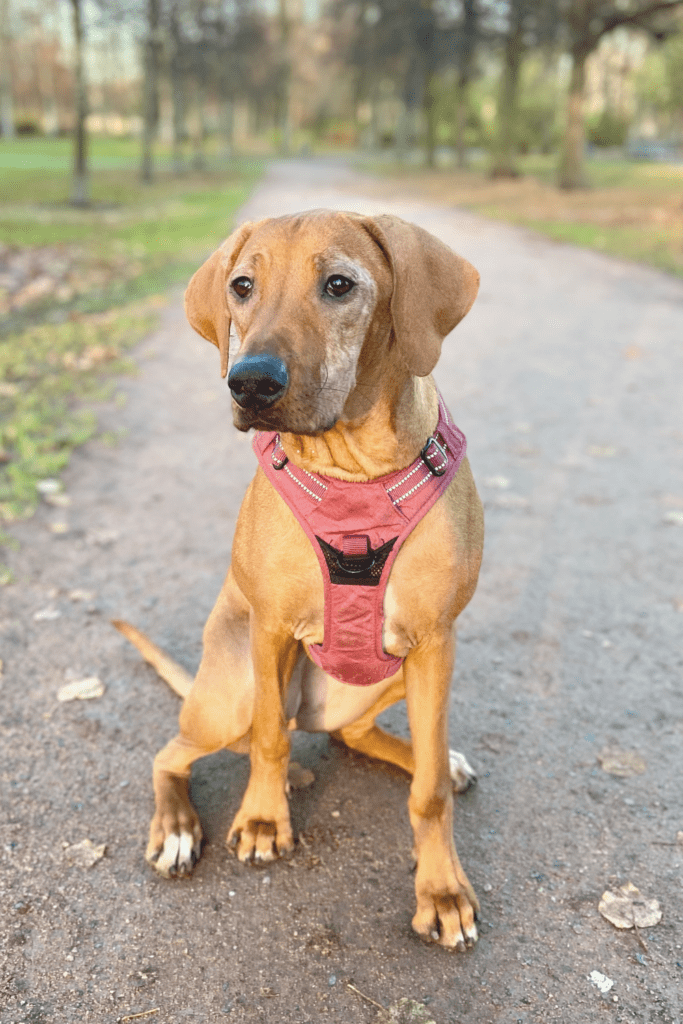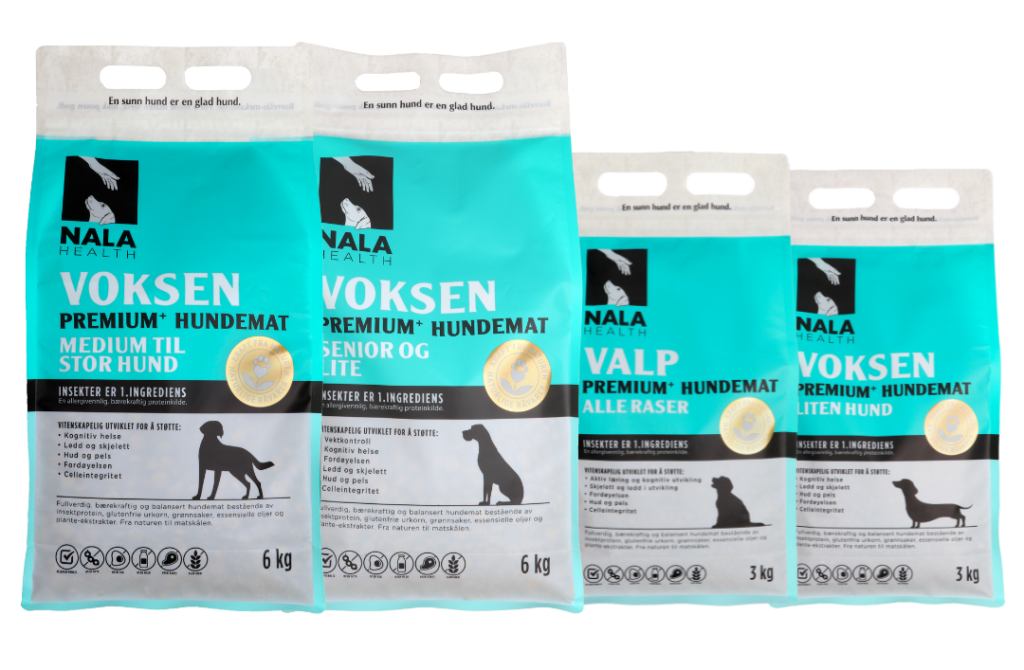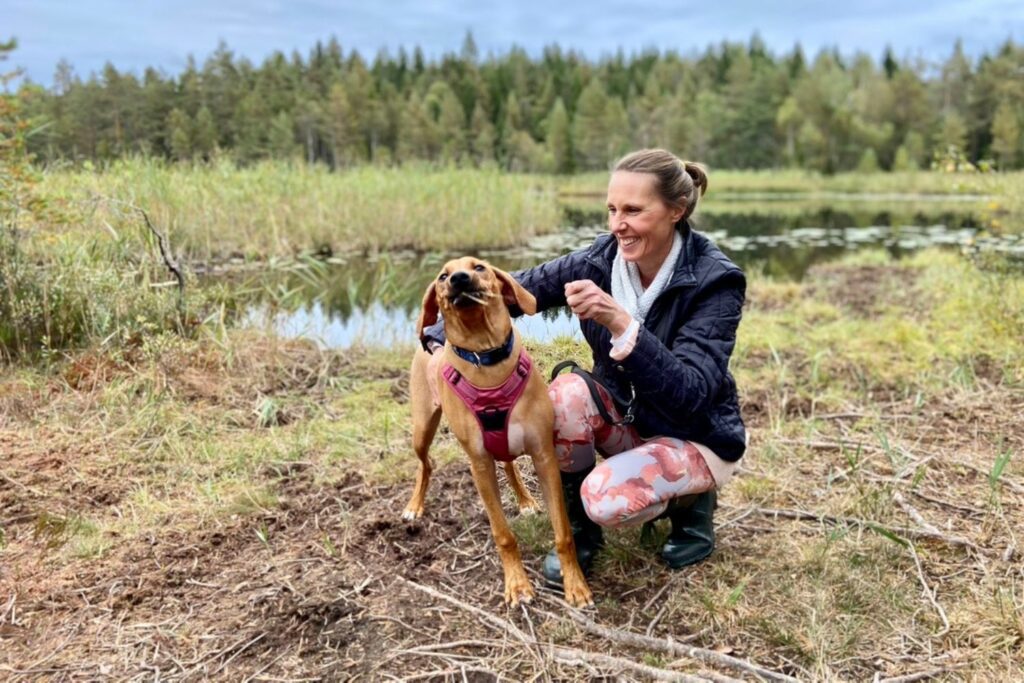Food Allergy and Intolerance
 Cecilie Hemsen Berg
Cecilie Hemsen Berg
Just like humans, our dogs can suffer from various health issues, such as food allergies and sensitivities. The nuances of allergies can be perplexing and distressing for dog owners who want nothing but the best for their furry friends. In this comprehensive guide, we explore food allergies in our dogs, helping you recognize and treat these conditions to ensure your pet’s optimal well-being.
Defining Food Allergies and Sensitivities
Food allergies occur when a dog’s immune system mistakenly identifies a particular food ingredient as harmful, triggering an allergic reaction. They can occur at any time during life, but usually, symptoms start during your puppy’s first 6 months.

On the other hand, food sensitivities, also known as intolerances, involve a less severe reaction and are typically associated with the digestive system’s inability to process certain food components. The treatment for both is the same and can involve hypoallergenic diets (like Nala Health), medication or a combination of both.

Symptoms to Watch Out For
- Various signs might indicate that your dog is grappling with food allergies or sensitivities, such as:
- Skin irritation or inflammation
- Itching, especially around the paws, mouth, groin and ears
- Vomiting or diarrhoea
- Chronic ear infections
- Excessive gas
worst-case scenario; your dog can have an anaphylactic shock. This is very uncommon but may also occur as a reaction to a bee sting, a medicine or a vaccine.
Diagnosing Food Allergies
If you suspect your pet has a food allergy or sensitivity, consulting a veterinarian is imperative. A vet may recommend:
- Elimination diets to identify the problematic ingredient
- Blood tests to rule out other potential issues such as environmental allergies like pollen. Blood tests are not as effective in uncovering food allergies.
- Eliminating external parasites that are also a common cause of itching.
An elimination diet is a systematic approach and the most effective way to uncover a potential food allergy. This process involves temporarily restricting your dog’s meals to specific, limited ingredients that are unlikely to trigger allergic reactions. Commonly, a unique protein source and a novel carbohydrate are the core components. Over a period, usually lasting a few weeks, various foods are gradually reintroduced, allowing close observation of any adverse reactions or symptom recurrence. With the guidance of a veterinarian, this method acts as a powerful diagnostic tool, illuminating the specific foods or ingredients causing discomfort to your dog.

Dogs can have cross-allergies which means they are allergic to, for example, pollen (environment) and chicken (food).
Treating Food Allergies in Dogs
Your dog will always have food allergies so the key is to find a management plan to alleviate their symptoms. This can be done through diet, medication or a combination of both. Together with your veterinarian, you can find a plan that is best for your dog.
Allergy-Friendly Food
Allergy-friendly foods (such as Nala Health) play a pivotal role in managing and alleviating the symptoms of food allergies and sensitivities in dogs. These specially formulated diets are designed to exclude common allergens (beef, chicken, soy etc), providing a gentle yet nutritious alternative to regular dog foods. Some foods incorporate hydrolyzed proteins that are easily digestible and less likely to trigger an immune response. Nala Health uses insect protein from black soldier fly larvae as their main source of protein. Novel protein sources like this are both nutritious and are less likely to trigger allergies in your dog. You can read more about insect protein for dogs here.
Gut health also plays an important role in allergy management. The gastrointestinal tract is not just responsible for digestion but is also the primary home to their (and our) immune system. This is why Nala Health has added probiotics and prebiotics to our food, to ensure your dog’s gut is in balance.
A balanced gut microbiome, consisting of beneficial bacteria, is also crucial for maintaining the integrity of the gut barrier and regulating immune responses. “Leaky gut” is a condition where the gut lining becomes permeable allowing allergens to “leak” into the body, triggering an immune response. Butyrate, an ingredient in Nala Health is a fatty acid that supports the gut lining and can help prevent leaky gut.

Medication to Manage Symptoms
It is important to talk with your veterinarian about the best course of medical treatment that both suits your lifestyle and your wallet. Here are some common medications that are used to manage allergies:
- Steroids/Corticosteroids: Corticosteroids, such as prednosolone, are synthetic versions of the body’s natural steroids. They have powerful anti-inflammatory properties and suppress the immune system. Prolonged use can lead to weight gain, weakened immune system and gastrointestinal ulcers.
- Immunosuppressive Drugs: Such as Atopica suppress or reduce the strength of the body’s immune system. Side effects can include increased risk of infections, nausea, liver/kidney dysfunction and increased risk of some cancers.
- Apoquel (oclacitinib): Apoquel is specifically designed to treat itching and inflammation associated with allergic dermatitis in dogs. It works by inhibiting certain enzymes (Janus Kinase enzymes) that are involved in the itch and inflammation response. While many dogs tolerate Apoquel well, some potential side effects include: vomiting, diarrhea, letharg, decreased appetite and increased risk of developing serious infections.


Supplements for Allergies
Providing your dog with a nutritionally rich diet is an important part of ensuring your dog’s well-being. Additionally, you can enhance their dietary regimen with the following supplements:
- Omega 3 and 6: Essential fatty acids can offer anti-itching benefits by mitigating inflammation. A balanced diet rich in omega 3/6, zinc, and vitamin B complex, such as Nala Health nourishes the skin and bolsters the immune system.
- Probiotics: Incorporating probiotics into your dog’s diet supports a healthy gut, optimizing nutrient absorption, strengthening the immune response, and facilitating efficient waste excretion.


- Quercetin: A natural antihistamine found in fruits like apples and berries, it’s also available as supplements.
- Nettle Leaf: Recognized for its antihistamine traits, it can be used as tea or supplements. Never feed nettle raw.
- Turmeric: A potent anti-inflammatory, it can be slowly introduced to your dog’s meals.
In all instances, it’s important to work closely with your veterinarian. They can offer specific guidance tailored to your dog’s unique situation.



Food allergy FAQs
- What common foods cause allergies in dogs? Dogs often react to common protein sources such as such as beef, chicken, eggs and soy. In addition to this wheat, maize and dairy dairy are common culprits.
- How long does it take for symptoms of food allergies to subside? It may take a few weeks to a few months for symptoms to fully subside after eliminating the allergenic food.
- Can food allergies be cured? While there is no cure, symptoms can be managed effectively with the right approach.
Our Nala and Food Allergies
Nala was battling with itchy skin, hair loss and recurrent ear infections, as well as paw licking. As a result, we went to different veterinarians who in their own unique way, contributed to expanding our knowledge and giving us more insights. Gradually, we gained a better understanding of what was causing Nala’s ailments, and it turned out that she reacted to both food and pollen, especially grass.


One can experience cross allergies, where some of the proteins in the pollen are similar to the proteins in the food. Our immune system, therefore, reads the proteins from the food incorrectly and thinks that it is pollen.
Initially, Nala was fed dog food from an internationally renowned producer. We also tried various speciality diets with no effect. Our solution was a balanced and allergy-friendly diet containing vegetables, berries, fruits, oils and other important nutrients and supplements. In her senior years, she mostly ate homemade food. We partnered with our veterinarian, Rose, to ensure Nala got all the nutrients she needed. You will find more articles on our website that provide advice on diet and general lifestyle.


Normally, we cooked enough food for a week and froze into daily portions. If you are going to cook yourself, you must ensure the diet is balanced and contains all the vital nutrients. You also have to ensure your dog gets the right amount of food to maintain a healthy weight. Therefore, it may be easier and safer to find allergy-friendly food and that ensures that the dog gets a complete and balanced diet.
Our advice is intended as inspiration and input, and should not replace the treatment or advice given by the veterinarian.

